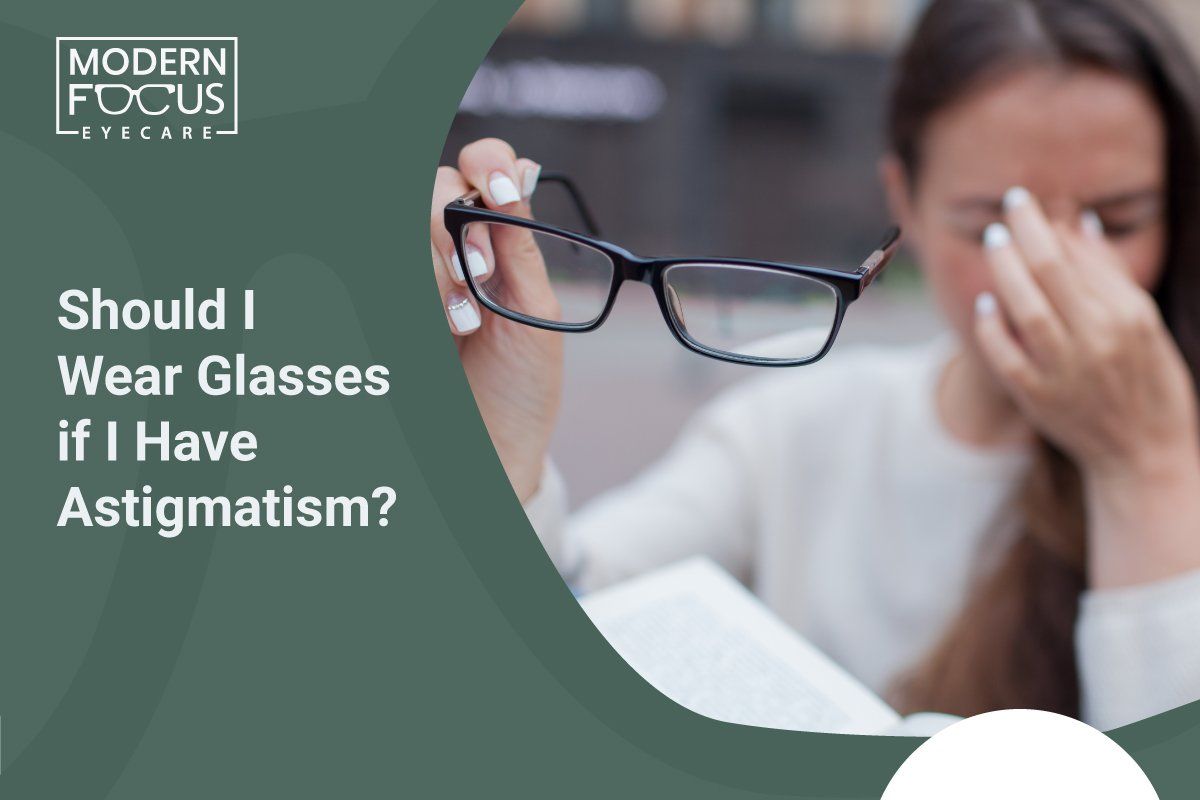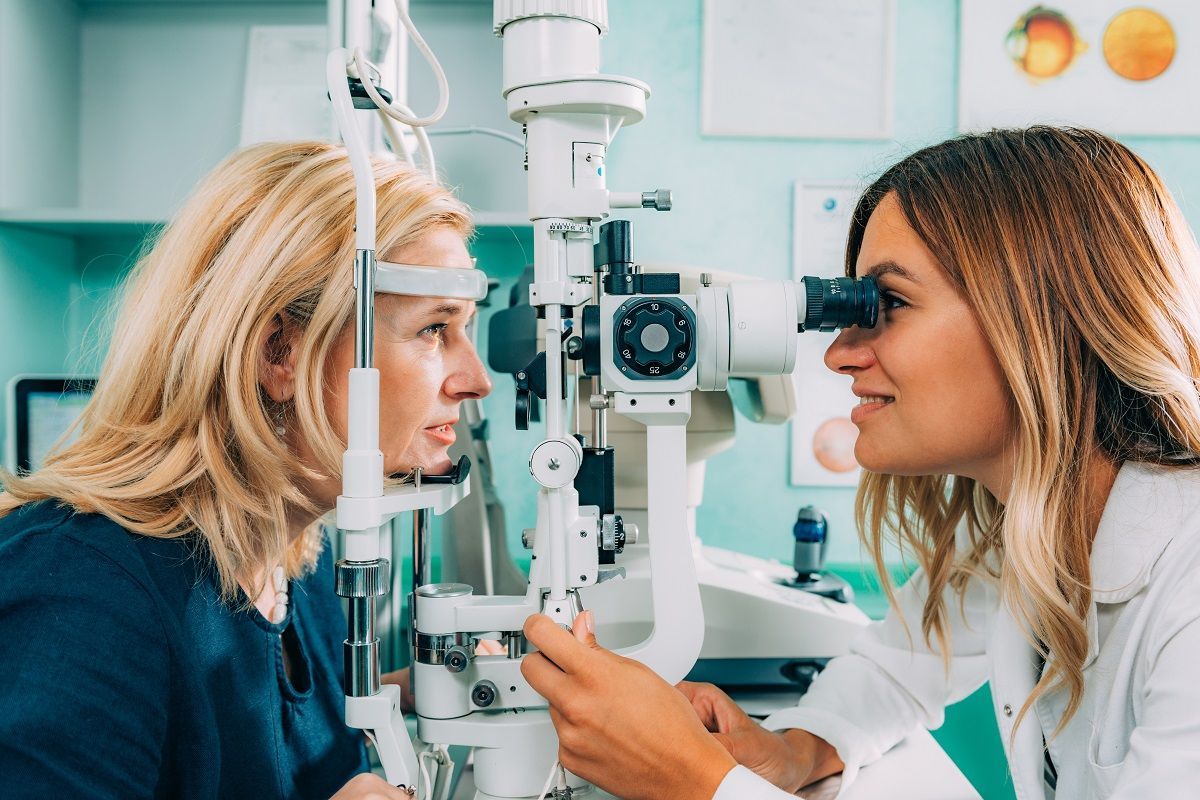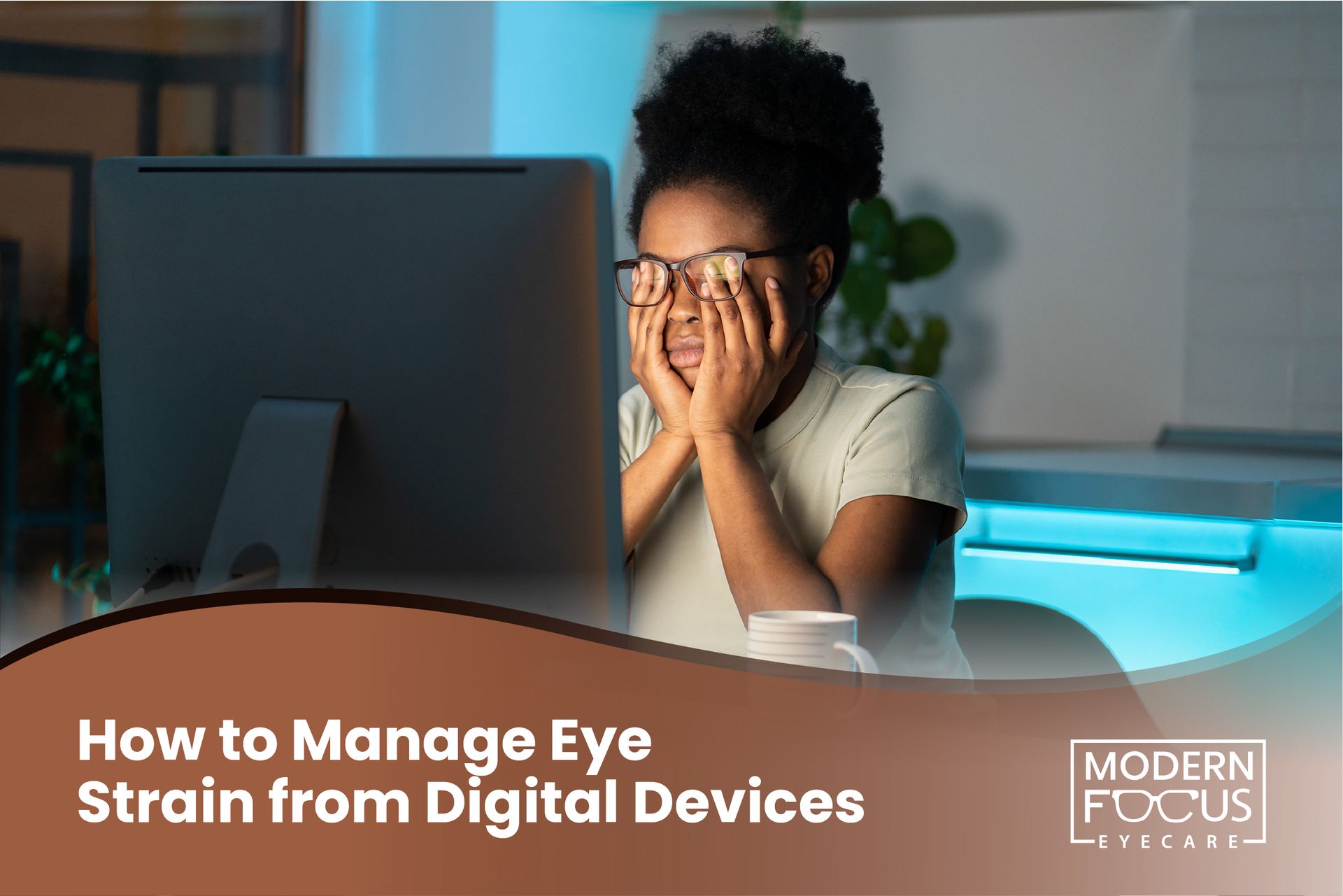Should I Wear Glasses if I Have Astigmatism?

Astigmatism can be bothersome. It manifests as blurred vision, making objects seem blurry at either short or long distances. Commonly, with blurred vision, getting a pair of eyeglasses appears to be the solution. Do we need glasses for astigmatism? Do over-the-counter reading glasses suffice? Let's find out.
What is Astigmatism?
Astigmatism is a visual disorder caused by corneal irregularities. This distorts the cornea and the eye's lens (which focuses light on the retina). As a result, light may travel in an altered path to the retina, causing distorted vision.
Have you ever noticed that street lights and headlights look stretched and long at night? You may have astigmatism. Due to the multiple points at which light enters your eye at night, it appears stretched.
What Causes Astigmatism?
While genetics play a significant role in astigmatism, it is unknown what causes it. A person with astigmatism is often born with it but may develop it later in life. Astigmatism can also occur following an eye injury or surgery. Nearsightedness or farsightedness is also often associated with astigmatism.
What Are the Symptoms of Astigmatism?
One of the most common symptoms of astigmatism is blurry vision, which can be so mild it's hard to notice. Other symptoms of astigmatism include:
- Difficulty seeing at night
- Seeing glare and halos at night
- Seeing shadowy images
- Eyestrain
- Squinting
- Eye irritation
- Headaches
That's why your vision is as important as other aspects of your health. A regular eye exam by an optometrist is the best way to find out what's up with your vision.
Also, read -
How Can I Fix My Blurred Vision?
Do You Need Glasses if You Have Astigmatism?
Blurry vision comes with the need for glasses. But do you need glasses for astigmatism? Without a doubt, glasses can correct astigmatism and dramatically improve the clarity of your vision. A corrective cylindrical lens in astigmatism glasses helps light refract correctly on the retina. This is crucial in the treatment of astigmatism.
Furthermore, the lens design in glasses for astigmatism counteracts the effects of an uneven cornea. Some can even correct for farsightedness or nearsightedness.
Prescribing glasses for astigmatism depends on your exact nature and degree of astigmatism. Furthermore, noting the difference in refractive power of both eyes may be of use in calibrating your glasses.
When Should You Wear Glasses for Astigmatism?
Astigmatism can blur things, strain your eyes, cause double vision, or make it difficult to see at night. You'll probably need glasses if these symptoms occur and persist. If you have astigmatism, an eye doctor can prescribe you new glasses and answer any questions you may have about when to wear them.
What Level of Astigmatism Requires Glasses?
The extent of astigmatism is expressed in terms of diopters. To provide some perspective, a normal eye without any astigmatism has a value of 0 diopters. Varying values in diopters determine the severity of astigmatism. Here are the different classifications of astigmatism:
Mild Astigmatism: < 1.00 Diopter
The need for astigmatism glasses or surgery is unnecessary in mild astigmatism. Additionally, mild forms of astigmatism may not even manifest any symptoms.
Moderate Astigmatism: 1.00 to 2.00 Diopter
Those with moderate astigmatism need glasses or laser surgery to correct their vision. You may be able to function without corrective lenses, but the symptoms of moderate astigmatism are noticeable. Glasses or contacts can significantly alleviate symptoms.
Severe Astigmatism: 2.00 to 3.00 Diopter
Symptoms of severe astigmatism can adversely affect your daily functioning. Severe astigmatism can lead to headaches that can be extremely painful.
Extreme Astigmatism: > 3.00 Diopter
A person with extreme astigmatism will need treatment to be able to see distant and near objects easily. If left untreated, Astigmatism will make it impossible for you to see clearly.
What Are The Best Glasses for Astigmatism?
- Choosing the Right Size and Shape for Your Frame: A flatter frame is better suited to people who have astigmatism. If you use round or curved frames, the light may be bent, distorting your vision. You must choose a frame that sits securely on the bridge of your nose to see clearly and comfortably.
- The Material of the Lens: More severe astigmatism will sometimes need a thinner lens than a regular lens to correct it. Typically, lenses with a high index or Trivex are used for people with high prescriptions. Plastic lenses tend to be less expensive and can be helpful for people with a low level of astigmatism.
- Specialized Lens Coatings: Whenever you order glasses, you can get them with custom coatings. A wide range of options is available to choose from, including scratch-resistant, UV-blocking, as well as blue-light blocking. For those who have astigmatism, anti-glare or anti-reflective coatings may be used to increase the amount of light that enters the eye.
Do Reading Glasses Correct Astigmatism?
A pair of reading glasses purchased over the counter won't be able to correct astigmatism. In contrast, a pair of prescription eyeglasses for astigmatism can help you see clearly.
Starting to have difficulty reading or driving due to astigmatism? Get the right prescription from your eye doctor.
Can Astigmatism Go Away Naturally?
When it comes to astigmatism, it is almost impossible for it to disappear on its own. The American Academy of Ophthalmology says eye exercises are not an effective method of treating astigmatism, despite some beliefs. The only way to correct refraction issues is with glasses, contacts, and surgery.
What Happens if You Don't Correct Astigmatism?
A study in 2011 investigated the effects of uncorrected astigmatism. Results showed a considerable reduction in vision even at levels as low as 1.00 diopter. A long-term uncorrected condition may severely affect patients' independence, quality of life, and overall health.
Get Professional Help With Your Astigmatism
Here at
Modern Focus Eyecare, we aim to give you the best eye care that suits your needs. Our institution provides a comprehensive eye exam to assess the severity of your astigmatism. Additionally, our board-certified optometrists can provide you options and customizations to your pair of eyeglasses for astigmatism, making your life much easier. Let's talk about your eye health today. Call us at
(972) 617-800.
If you have any questions, schedule an appointment
With Our Eye Doctor or Call Us At (972) 617-8000
Modern Focus is your one-stop Eyecare Center in Texas. We have a team of highly-experienced optometrists to examine, diagnose, treat, and manage diseases, injuries.
Useful Links
Our Eye Services
Copyright © 2021 Modern Focus. All rights reserved.











